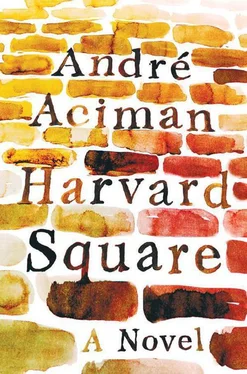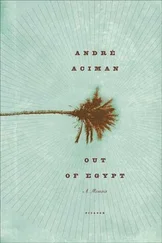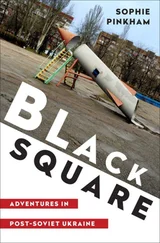I couldn’t tell yet whether this was amicable sparring or comic banter about to turn ugly, or if they were engaged in the besotted ramblings of Vladimir and Estragon. But the louder of the two was definitely a cross between Zorba the Greek on steroids and Rameau’s nephew on speed.
At some point I could no longer resist. I stood up and headed to his table. “I couldn’t help overhearing you. Are you students here?” I asked in French.
No answer. Just a dismissive shake of the head, immediately followed by that sinister gimlet stare of his, which seemed to ask, And if we are, what business of yours is it, anyway?
I wanted to say that I hadn’t spoken to a single person, much less in French, for two days, and with Apartments 42, 21, and 43 I traded nothing but distant glances, and frankly this sitting on the roof terrace every day was not good for my soul, and eating by myself was no better, to say nothing of the watered-down swill they called coffee here. But the silence between us was hard to take, because it came with a decidedly hostile stare. I was already preparing to apologize and bow out, saying that I hadn’t meant to interrupt, thinking to myself that I should have known better than to barge in on perfect strangers and expect to make small talk with a street ruffian and his acolyte.
Before I returned to my table, the words slipped out of my mouth:
“Sorry to disturb. I just felt like speaking to a Frenchman.”
Again the stare.
“Me, French? What are you? Blind? Or is it deaf you are? With my Berber skin? Look here.” And with this he pinched the skin of his forearm. “This, my dear friend, is not French skin.” As though I’d insulted him. He was obviously proud of his Berber skin. “This is the color of wheat and gold.”
“Sorry, my mistake.”
I was determined to step back to my table and pick up Montaigne where I’d left him face down.
“How about you, are you French?” he asked.
I couldn’t resist.
“With my nose?”
He was playing with me. I knew he wasn’t French, just as he must have immediately guessed I wasn’t either. Each was basically letting the other think he could pass for French. A tacit compliment that hit the mark in both of us.
“How come you speak French if you’re not French?”
Anyone born in the colonies would have known right away the answer to that. He was definitely playing.
“For the same reason you speak French,” I replied. He burst out laughing. We understood each other perfectly.
“Another one of us,” he explained to Young Ernest, who was still trying to sort out what possible importance Nostradamus could have in today’s complex geopolitical conflicts.
“What do you mean one of us ?”
“ Il ne comprend rien du tout celui-là, this guy doesn’t understand a thing,” he said, with typical mock hostility prickling his voice.
We exchanged names. “You can call me Kalaj,” he said, as though yielding to a public nickname he preferred to his own name, but also because there was a vague suggestion in his voice that one could call him Kalaj “for now”—until, that is, he got to know you better.
He’d been here for six months only. Before that Milan. This was home now.
He threw out a word in Arabic at me.
I threw back another.
We laughed. We were not testing each other; more like feeling the ground for how to improvise a tentative pontoon bridge.
“Perfect accent,” he commented, “even if it is Egyptian Arabic.”
“Yours is difficult to place.”
“I seldom speak Arabic,” he said, then asked, “Jewish?”
“Moslem?” I replied.
“Just like a Jew: always answers with a question.”
“Just like a Moslem: always answers the wrong question.”
We were both laughing, while Young Hemingway stared uneasily, thrown off as he was by our chaffing and mock-religious slurs.
“Why did the Arab store owner buy fifty pairs of jeans from the Jew?”
“I don’t know.”
“Because Isaac promised Abdou to buy them back at a higher price.”
Laughter.
“But why did Isaac buy them back in the end?”
I didn’t know the answer to this either.
“Because the Arab agreed to sell them at half price.”
“Did the Arab ever buy blue jeans from the Jew again?” I asked.
“All the time! You see, the jeans were made in Egypt and cost the Arab a fraction of what the Jew paid for them to begin with.” We laughed heartily.
“The Middle East!” he said.
“What do you mean the Middle East ?” asked bewildered Hemingway.
Kalaj ignored the question.
“Were you waiting for someone?” he asked.
“No, just reading.”
“But you’ve been reading for hours. Why don’t you just sit down with us, and we’ll talk a bit? Bring your books.”
So he had been aware of me all along. He told me about his taxi cab. I told him about my forthcoming comprehensives. We were talking. Talking is what humans like to do when they’re together, talking is natural. On Sunday afternoons, people talk, laugh, drink coffee. I had almost forgotten that people did this. Before I knew it, he ordered a round of coffee for the three of us. “Talk is good, but someone needs to order coffee,” he said.
He was, with this round of coffee — and it happened so fast I almost didn’t notice — celebrating me. This blustering volcano is probably kind, I thought. But crafty, ill-tempered, and mad. Stay away.
I was the exact opposite. Interest in other people came naturally enough; but it came the long way around, with so many bends, hurdles, doubts, and deferrals that halfway toward a friendship, discouragement and disappointment would invariably settle in, and something in me would simply give up.
Once again, Kalaj ranted against American women. He told us an obscene joke about an Arab who is arrested and beaten by the police for jumping a naked blond woman sunning herself on a deserted beach in North Africa. As they shackle him and pound him with more blows and accuse him of defiling a dead body—“Can’t you see she’s dead?” shouts one of the policemen — all the Arab could do in his defense was to shout back, “But, officers, I thought she was an American.”
Kalaj pointed to the various women sitting in the café. This one over there wouldn’t speak to him again because he’d refused to use protection. This other one sitting with her beau had turned him down once by saying “I think I’m going to take a pass.” He had never heard such insipid ersatz-speak before, and he repeated the words to us as if he were mouthing a ritual incantation spoken by extraterrestrials: I think I’m going to take a pass . In his rudimentary English the sentence was suddenly exposed for what it was: bland treacle-speak that sounded as artificial and no more capable of passion and arousal than a linoleum tile or a Formica tabletop. He pointed to a tall, slender, model type with a stunning figure. “She thinks I’m about to speak to her, but I’ve seen her come in and out of the bathroom too many times already. She has bathroom problems. Not for me!”
“What do you mean, not for you ?” interjected Young Hemingway, who by now was utterly outraged by such unmitigated misogyny.
“I mean I wouldn’t neek her with your zeb. ”
He was, as always, aware of every woman in the café. “They’re here for one reason only, and that reason is us three.” Young Hemingway asked him why he didn’t make a move if he was so sure. “Too soon.” The only people I’d heard speak this way were fishermen. They look at the sky, gauge the wind, the clouds, have a sixth sense about things, then when you least expect it, they’ll say, “Now!” The woman with the slender figure had just cast a look at our table. With absolutely no discretion, Kalaj began to chuckle out loud, “She looked!” We caught a smile ripple on her face.
Читать дальше












